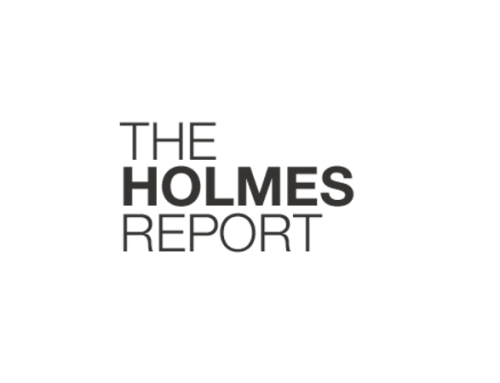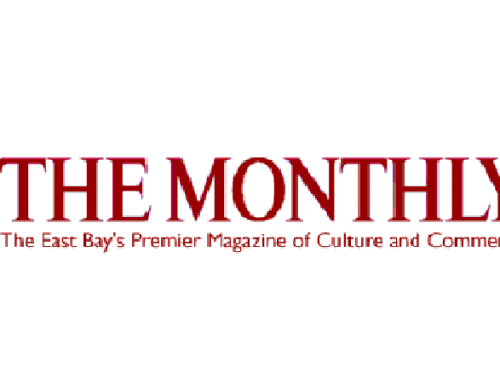By Julia Greenberg – Wired
APPLE LOVES A show. Over the years, the company’s staged product launches, where executives in jeans show off flashy new iPhones, have become a global cultural institution. But when Apple CEO Tim Cook kicked off this week’s keynote, he didn’t start by talking about the size of the latest phone.
“We did not expect to be in this position, at odds with our own government,” he said, referring to the company’s high-profile clash with the FBI over accessing information on the San Bernardino shooting suspect’s iPhone. “But we believe strongly that we have a responsibility to help you protect your data and protect your privacy.”
Over the past few weeks, as the legal battle between the FBI and Apple unfolded, so did the publicity war. The FBI argued that Apple’s assistance in unlocking the iPhone could help provide justice for the victims of the shooting, by potentially uncovering information about others involved and the events leading up to it. It insisted, at least at first, that it was simply a case of this one phone. Apple maintained the FBI’s demands not only threatened customers’ privacy and personal security, but also violated the company’s right to free speech. In the press and on social media, people took sides.
In late February, a Pew Research Center poll found that the majority of Americans sided with the FBI. Just a month later, after an outpouring of support for Apple—and the convenient revelation that the FBI could possibly, in fact, open the San Bernadino iPhone without Cupertino’s help—the court case is on hold, and Apple’s reputation as an ardent defender of privacy and security is stronger than ever.
How did Apple pull this off, when faced with the federal government’s onslaught and widespread public anxiety about terrorism, stoked in no small part by the San Bernardino shooting? In this case, it went off script. A company famous for its secrecy, and famous among reporters for stonewalling, opened itself to the media and the public in an unprecedented way to ensure that its side of the story was heard. For a company whose image is largely defined by its products, Apple’s PR machine churned to communicate that its principles matter too.
The Machine
From Antennagate to Foxconn, Apple has dealt with crises of varying magnitude before. But longtime Apple reporters say that the response in this latest case felt different. In mid-February, the FBI said it was unable to access encrypted data on the iPhone 5c of one of the San Bernardino shooters. A California magistrate ordered Apple to help, by creating a new software tool. But Apple believed complying would set a dangerous precedent, so it took its response public. Cook published an open letter on the company’s site laying out Apple’s privacy-centered argument justifying its decision not to cooperate.
It was just the beginning. Whenever the government or Apple filed new court documents, Apple held conference calls to provide background for journalists, any reporters and editors who might touch the case, and let them lob questions at the company’s attorneys. In the process, the company expanded its PR outreach beyond the standard cadre of journalists who follow the company’s every move. Apple invited some political and policy reporters in Washington, DC, to come to Apple’s office there to hear the company’s side. (Apple declined to comment.)
“They talk about products, but they never ever ever talk about anything else,” said Leander Kahney, a longtime Apple reporter and editor of the site Cult of Mac. “I think it’s unprecedented. I don’t think I’ve ever seen Apple do this.”
Cook too opened his literal doors, sitting down with ABC News reporter David Muir in his office to discuss the situation, an extreme rarity for the company. “I’m not sure I’ve ever done an interview in the office,” Cook says as the piece begins.
In this case, unsurprisingly, the setting was strategic. As The Wall Street Journal has noted, Cook’s office features photographs of Robert F. Kennedy and Martin Luther King, Jr. Behind Cook, you could clearly see the Ripple of Hope Award (a bust of RFK), which he was awarded last year for his commitment to social change. The intended message was clear: Cook cares as much about civil liberties as he does about selling iPhones.
“They were trying to stop the controversy from continuing before something happened, which is a sort of new PR approach,” says Mark Gurman, an Apple journalist and senior editor of 9to5Mac. In the past, he says, Apple might have addressed issues after they happened, if they addressed them at all.
That’s easier to do with a few bending iPhone 6 Plus units than it is with a precedent-setting court case. You can always quietly give an aggrieved customer a new phone. But for Apple, there’s no going back from what the FBI was asking. A preemptive strike was the only kind available.
The Mission
For both the company and the government, this debate is a crucial one. The government has portrayed Apple’s stance as a hindrance to crucial national security investigations. That’s a tough rap to beat. But encryption is central to Apple’s business (personal privacy has become a key to Apple’s marketing) and philosophy. Undermining its own security wouldn’t just help the FBI get into this iPhone, Apple argues, but in any number of devices in the future.
“They don’t want their customers to say, ‘They’re abetting terrorists.’ These are pretty heavy charges,” says Howard Bragman, chairman and founder of Fifteen Minutes PR. “They need to be clear and articulate. When you don’t speak sometimes, people assume the worst.”
To fend off that assumption, Apple made its crusade about, well, you and your private information. Donald Steel, a public relations expert in crisis management, says that Apple is the master of setting an agenda. And, here, their strategy came down to making it all about putting the customer first. That’s easier to understand than the ins and outs of crypto-security—and something Apple as a wildly successful consumer company knows how to do.
In the process, Apple also scores a marketing win. It reinforces the message that it can protect customer data in a way that its competitors don’t. Google publicly sided with Apple, but the Android operating system doesn’t have encryption by default. Apple also depends not on ads, like Google, Facebook, and others, but on selling hardware—and one of the ways Apple tries to sell customers on its hardware is by saying that its strong encryption ensures your data is yours and yours alone.
If Apple were to agree to assist the government in unlocking an iPhone, Gurman says that could also threaten their relationship with customers, especially enterprise customers, who have become an increasingly important source of revenue for the traditionally consumer-facing company.
All that said, Apple is eager to show its motives aren’t purely self-interested. Cook has long championed individual privacy on principle as Apple has touted encryption as an important part of the iPhone. Cook has also been an outspoken supporter for other social issues like protecting the environment and LGBTQ rights. To drive the point of corporate principle home, the story recently spread that some engineers threatened to quit if Apple lost in court.
“This is Cook’s thing,” says Philip Elmer-DeWitt, a longtime Apple reporter and founder of tech blog Apple 3.0. “He’s taken principled positions.”
The Strategy
As that Pew survey showed, not everyone was won over by Apple’s PR offensive, despite several major American newspapers running supportive editorials. And yet, in some ways, it’s surprising Apple garnered as much support as it did.
“It’s a genius marketing strategy to grab the American flag and wrap yourself in the mantle of free speech and privacy,” longtime crisis communications expert Sam Singer says. “Two things Americans value above all else.”
Andy Cunningham, a former Apple publicist for Steve Jobs, told The Chicago Tribune that she thinks Apple didn’t go far enough in explaining how assisting the FBI in this case could set a dangerous precedent where foreign countries could demand similar assistance down the road. “I think (Jobs) would’ve spent more time framing the issue for the (public) than I think they’ve done so far,” she said.
But others believe Apple masterfully applied the public relations apparatus it normally uses for, say, product launches, to this issue. “This is not about what color the new iPhone is going to be. I like new iPhones, but they don’t really matter,” Steel says. “But they know how to make a splash. They know how to dominate the headlines.”
In that sense, some say, it’s almost unfair to pit the FBI and Department of Justice against Apple. Brooke Hammerling, the founder of Brew Media Relations, argues that the Apple PR machine has always been “above and beyond,” one of the best. The FBI and DOJ, on the other hand, are government agencies. “The DOJ rarely can act with the swiftness of a private individual corporation,” Singer says. “Yes, Apple has done a great job, but they were fighting an opponent who had at least one arm tied behind its back.”
The Next Round
The battle over privacy and security, however, is far from over. Many believe that this is only the first round of Silicon Valley versus the government.
And Singer says it hasn’t been a total victory for Apple. He argues the FBI and DOJ were successful at raising questions about how secure Apple’s iPhones are as well, and that could prove to be a problem down the line.
So what should Apple do now? “If I were a technology company, I’d propose we have a public sit-down to discuss these issues,” Singer says, adding it could include constitutional lawyers and other experts from around the world as well as the company and federal officials. “Everyone might not agree on a single thing, but the debate is vitally important for public understanding, privacy, and for public safety.” Having that discussion during a detente period may also help the company avoid conflicts down the road.
Steel says that Apple’s ultimate objective is for whatever regulation that does come be favorable to its privacy and security goals. Public opinion will continue to matter, especially since Congress will likely have the last word. If there’s anything Apple knows, it’s that the show matters. So sometimes you have to put your showmanship to work.





